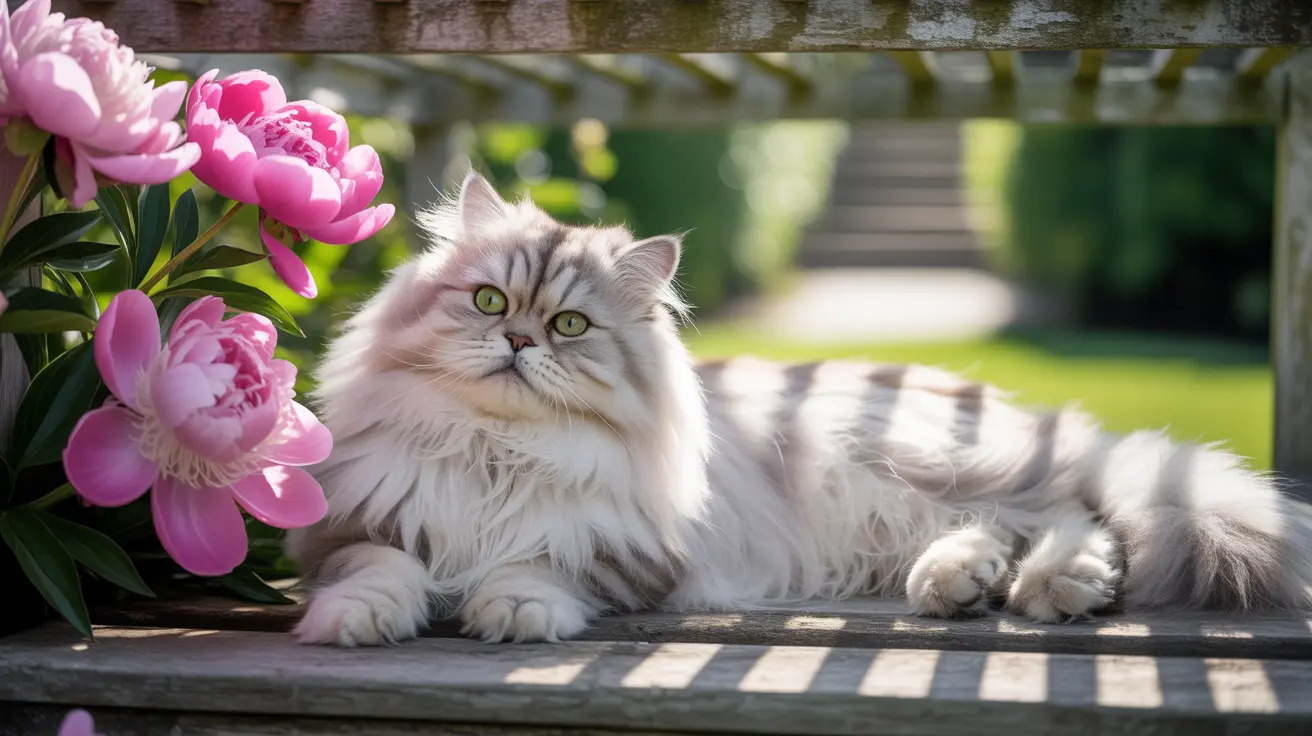As a cat owner, creating a safe environment for your feline friend is crucial. One potential hidden danger that many pet parents overlook is the beautiful peony flower, which can pose unexpected risks to curious cats. Understanding the potential toxicity of these popular garden plants is essential for protecting your furry companion's health and well-being.
In this comprehensive guide, we'll explore everything you need to know about peonies and their potential impact on cats, from identifying toxic components to preventing accidental ingestion.
Understanding Peony Toxicity in Cats
Peonies contain a compound called paeonol, which is toxic to cats when ingested. All parts of the plant - including stems, bark, flowers, and leaves - can potentially harm your feline friend. While peony poisoning is rarely fatal, it can cause significant discomfort and health issues that require careful attention.
What Makes Peonies Dangerous?
The primary toxic component, paeonol, can trigger a range of gastrointestinal symptoms in cats. The concentration of this toxin varies across different plant parts, with stems and bark typically containing the highest levels. Even small amounts of ingestion can lead to noticeable health problems.
Recognizing Symptoms of Peony Poisoning
Cats who have consumed peonies might experience several distinctive symptoms:
- Persistent vomiting
- Diarrhea
- Noticeable lethargy or depression
- Reduced appetite
- Potential stomach discomfort
Severity of Poisoning
The intensity of symptoms often depends on the quantity of peonies consumed. Small accidental nibbles might result in mild discomfort, while larger quantities could lead to more severe gastrointestinal distress. However, it's crucial to monitor your cat and seek veterinary advice if symptoms persist.
Immediate Steps for Peony Ingestion
If you suspect your cat has eaten peonies, follow these critical steps:
- Remove any remaining plant material from your cat's reach
- Monitor your cat closely for emerging symptoms
- Contact your veterinarian or animal poison control hotline
- Be prepared to provide details about potential quantity consumed
Professional Veterinary Care
Veterinarians might recommend supportive treatments such as fluid therapy, observation, and symptomatic management to help your cat recover. In most cases, the toxin will pass through their system with proper medical support.
Preventing Peony-Related Risks
Prevention is always better than treatment. Consider these strategies to protect your cat:
- Keep peony plants and bouquets out of your cat's reach
- Use protective barriers in garden areas
- Consider alternative, pet-friendly plants
- Dispose of wilted flowers promptly
- Educate family members about potential plant dangers
Garden and Home Safety Tips
If you're a garden enthusiast who loves peonies, consider creating designated areas inaccessible to cats. Fencing, raised planters, or strategic plant placement can help minimize risks while allowing you to enjoy these beautiful flowers.
Frequently Asked Questions
Are peonies poisonous to cats and what parts of the plant are toxic?
Yes, all parts of the peony plant contain paeonol, a toxic compound that can harm cats. The stems, bark, flowers, and leaves all pose potential risks.
What symptoms should I watch for if my cat eats peonies?
Watch for vomiting, diarrhea, lethargy, and decreased appetite. These are typical signs of peony poisoning in cats.
How quickly should I act if my cat ingests peonies?
Contact your veterinarian immediately if you notice symptoms or know your cat has consumed peony plant material, especially in significant quantities.
How can I keep my cat away from peonies in the garden or home?
Use physical barriers, place plants in inaccessible areas, and supervise your cat's outdoor activities. Remove temptation by keeping peonies out of reach.
Are peonies only toxic to cats or do they affect other pets too?
Peonies are also toxic to dogs and horses, not just cats. Always exercise caution with ornamental plants around pets.
By understanding the potential risks and taking proactive measures, you can create a safe, enjoyable environment for your feline companion while still appreciating the beauty of your garden and home.






